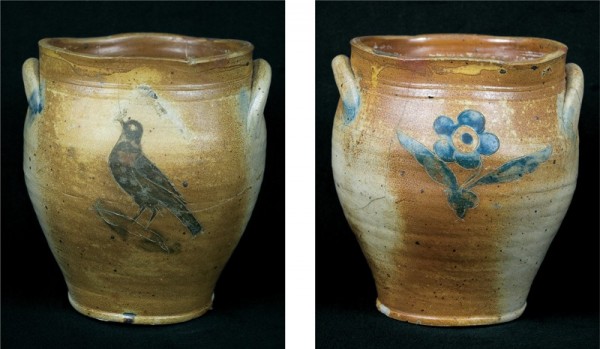
Storage pot (front and back), attributed to William Capron Pottery, Albany, New York, 1800–1801. Salt-glazed stoneware. H. 10". (All objects courtesy of the author; photos by the author.)
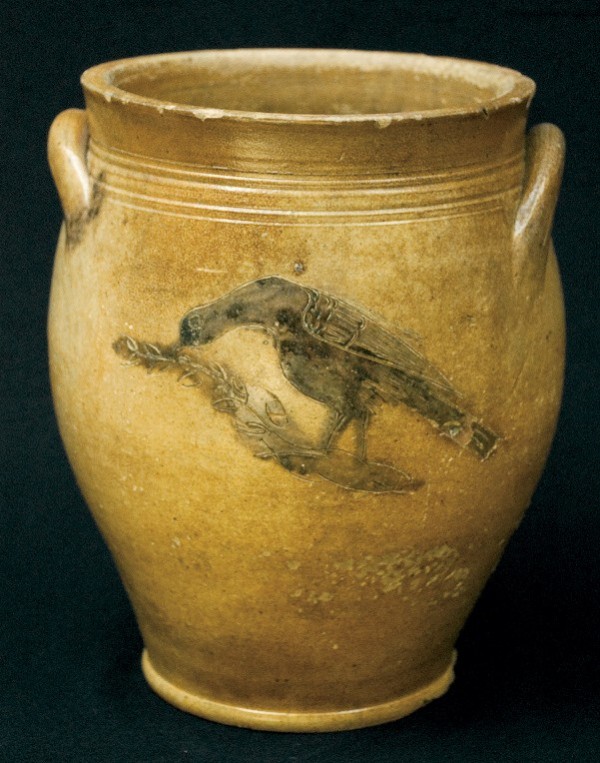
Storage pot, attributed to William Capron Pottery, Albany, New York, 1800–1801. Salt-glazed stoneware. H. 12". The incised decoration, filed with an unusual manganese slip, shows a bird on a branch feeding on berries. The reverse has an incised floral design.
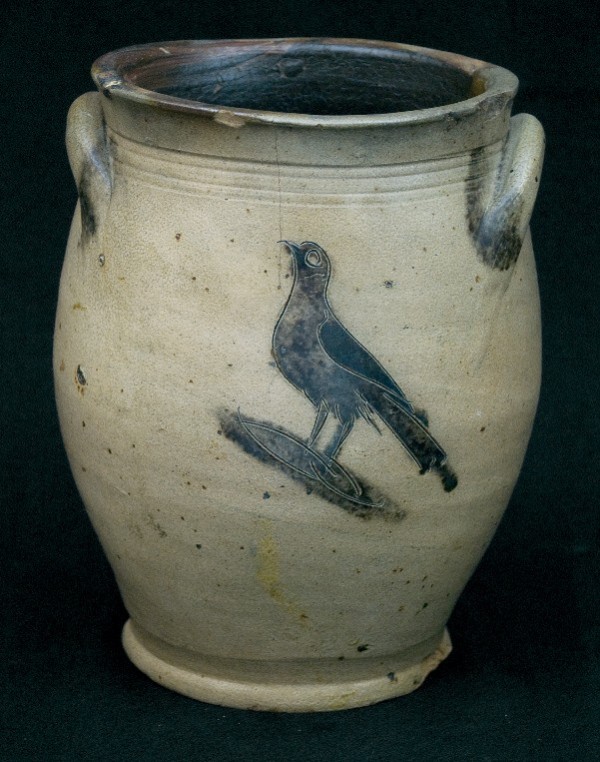
Storage pot, attributed to William Capron Pottery, Albany, New York, 1800–1801. Salt-glazed stoneware. H. 11". On the reverse is an identical bind, filled with the same unusual manganese colored slip used on the pot illustrated in fig. 2.
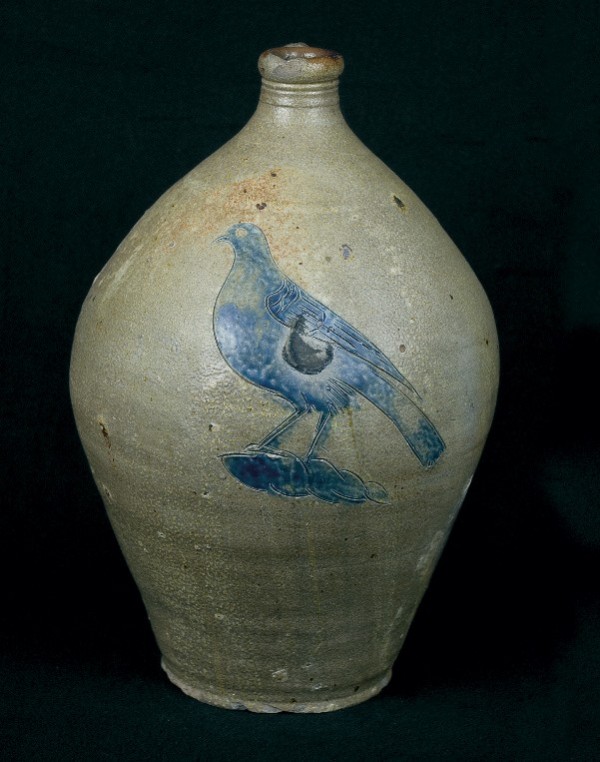
Jug, attributed to William Capron Pottery, Albany, New York, 1800–1801. Salt-glazed stoneware. H. 15 3/4". Incised bird with cobalt decoration.
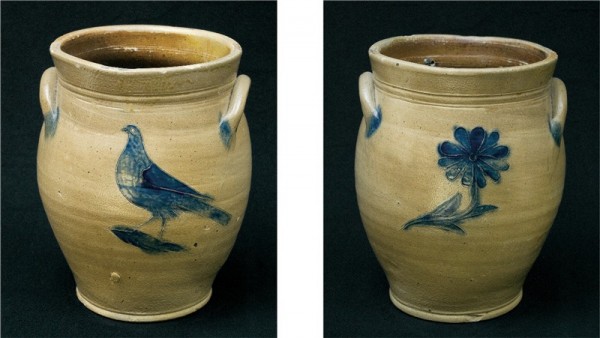
Storage pot (front and back), attributed to William Capron Pottery, Albany, New York, 1800–1801. Salt-glazed stoneware. H. 13". This is one of the most beautiful incised bird decorations found on Albany stoneware; the incised floral decoration on the reverse is also compelling.
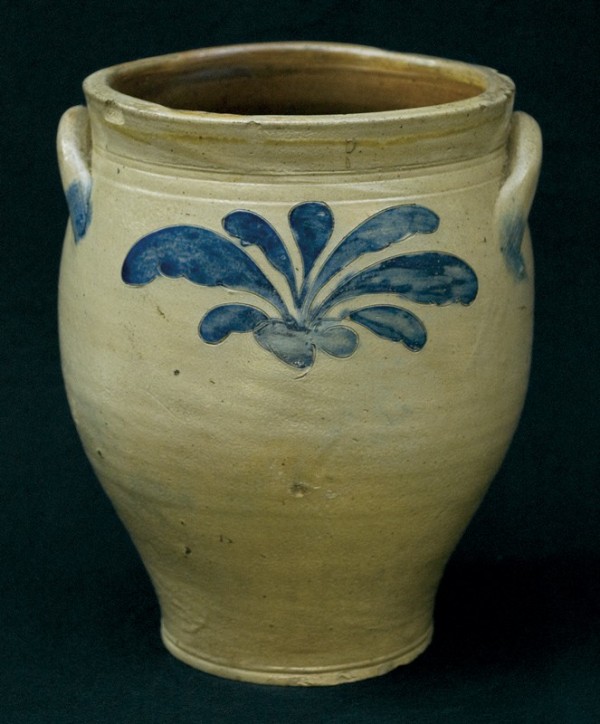
Storage pot, attributed to William Capron Pottery, Albany, New York, 1800–1801. Salt-glazed stoneware. H. 12". A three-gallon jar with incised abstract floral decoration. The identical design is on the reverse.
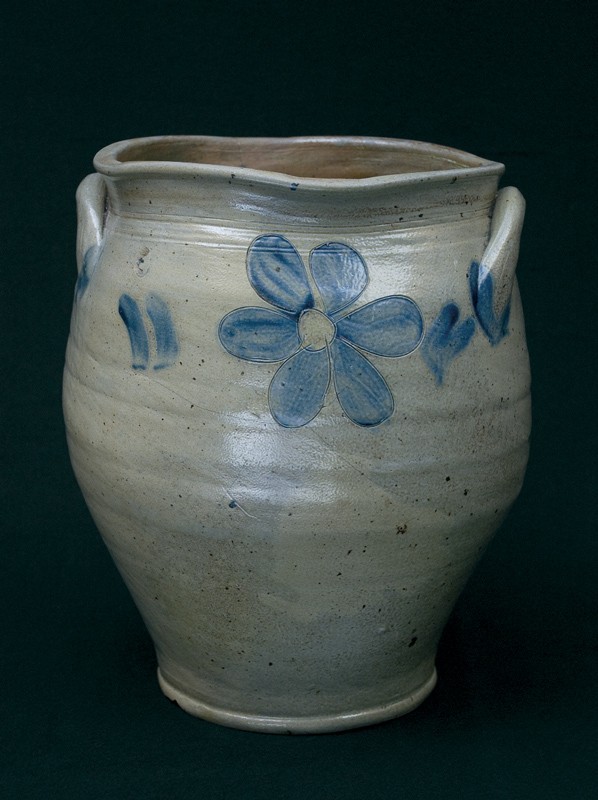
Storage pot, attributed to William Capron, Albany, New York, 1800–1801. Salt-glazed stoneware. H. 15". The same decoration is found on the reverse of this 4-gallon vessel.
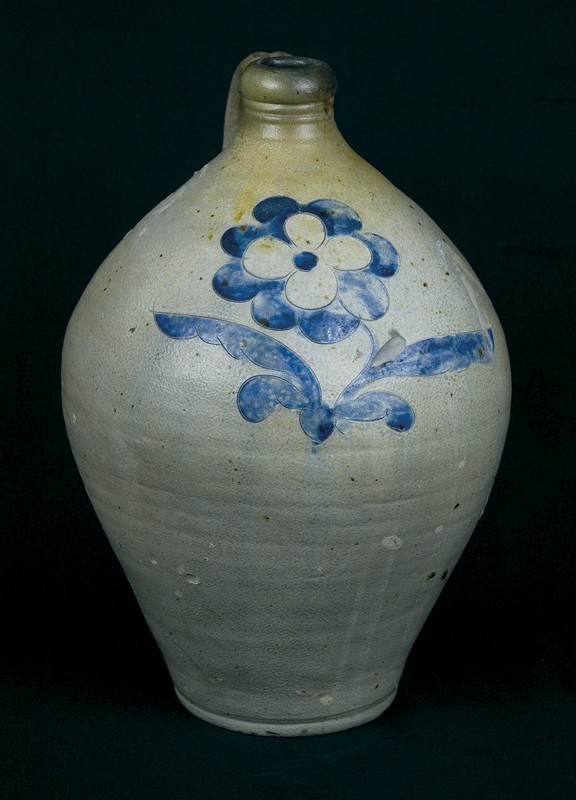
Jug, attributed to William Capron, Albany, New York, 1800–1801. Salt-glazed stoneware. H. 13".
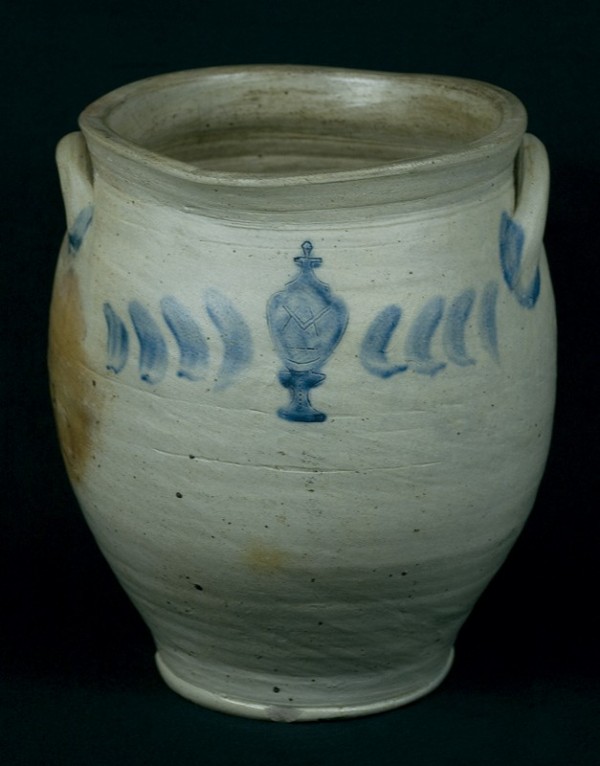
Storage pot, attributed to William Capron, Albany, New York, 1800–1801. Salt-glazed stoneware. H. 16". The impressed decoration of a covered urn is a Masonic emblem.
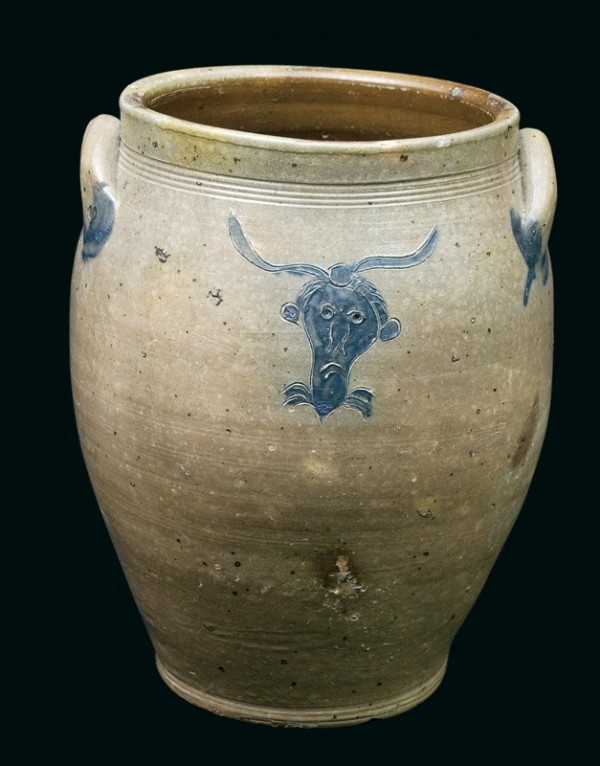
Storage pot, attributed to William Capron, Albany, New York, 1800–1801. Salt-glazed stoneware. H. 13". This jar bears an unusual incised jester decoration, with incised floral on the reverse.
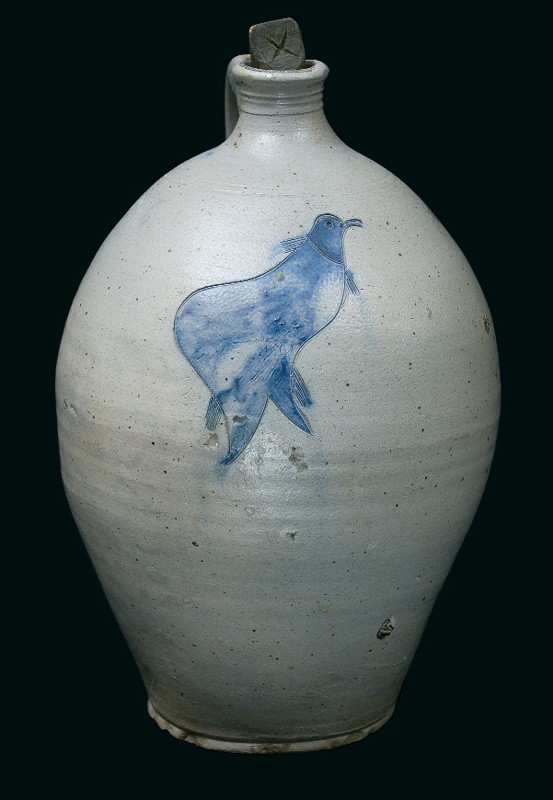
Jug, attributed to William Capron, Albany, New York, 1800–1801. Salt-glazed stoneware. H. 16". The incised decoration shows the body of a seal with a head of a bird, an extremely unusual motif.
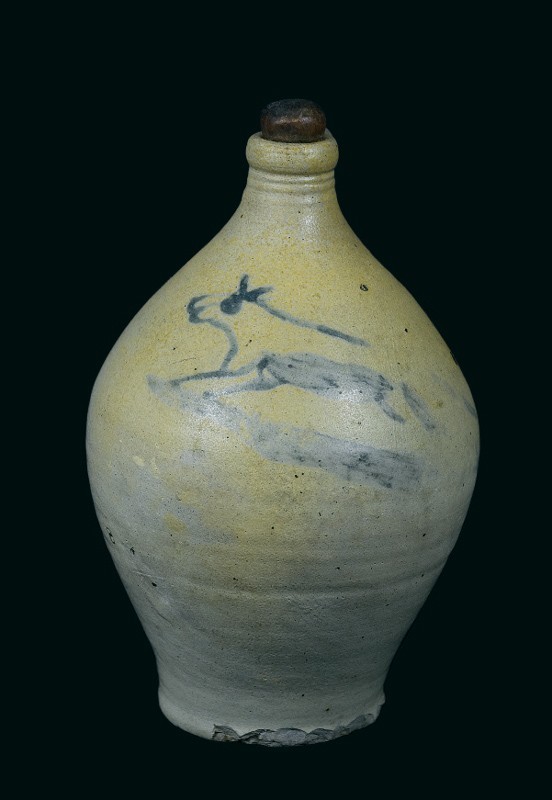
Jug, attributed to William Capron, Albany, New York, 1800–1801. Salt-glazed stoneware. H. 10". This jug displays another unusual decorative slip design, of an animal, perhaps a dog.
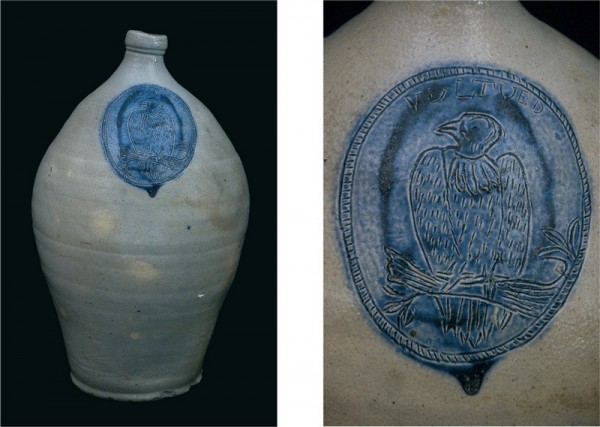
Jug, attributed to William Capron, Albany, New York, 1800–1801. Salt-glazed stoneware. H. 15". Mark, above cartouche: VULTURED [to be drunk]. The incised vulture perched on a limb in the cartouche is extremely unusual.
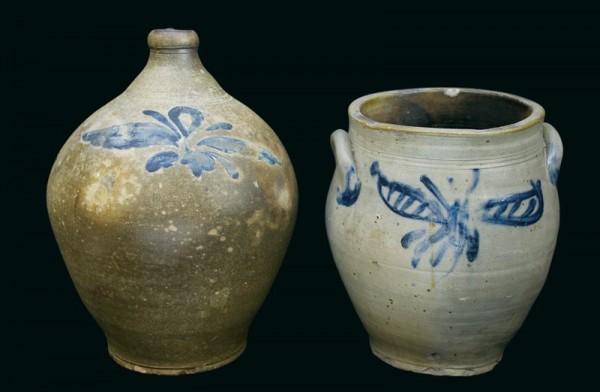
Jug and storage jar, attributed to William Capron, Albany, New York, 1800–1801. Salt-glazed stoneware. H. of jug 14"; H. of jar 12".
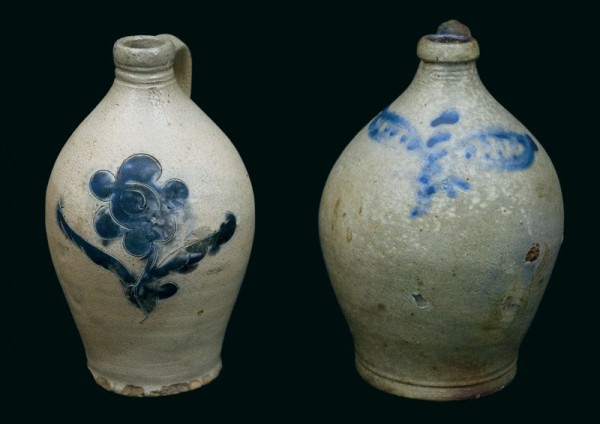
Jugs, attributed to William Capron, Albany, New York, 1800–1801. Salt-glazed stoneware. H. of each 7".
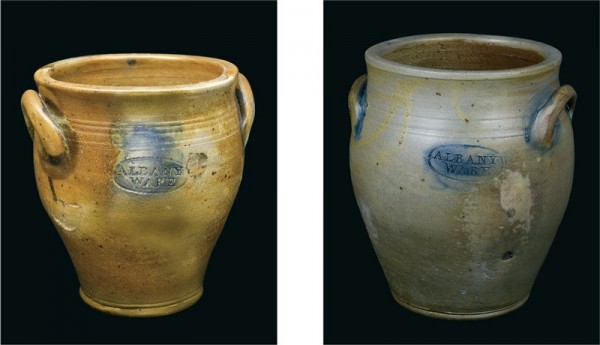
Storage pots, William Capron, Albany, New York, 1800–1801. Salt-glazed stoneware. Left: 1-gallon jar. H. 10". Right: 2-gallon jar. H. 13". Impressed on both sides of each: ALBANY / WARE.
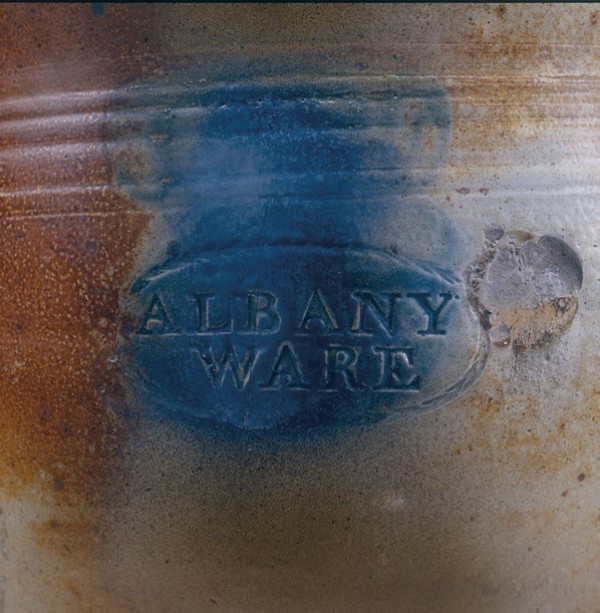
Detail of the 1-gallon jar illustrated in fig. 16.
